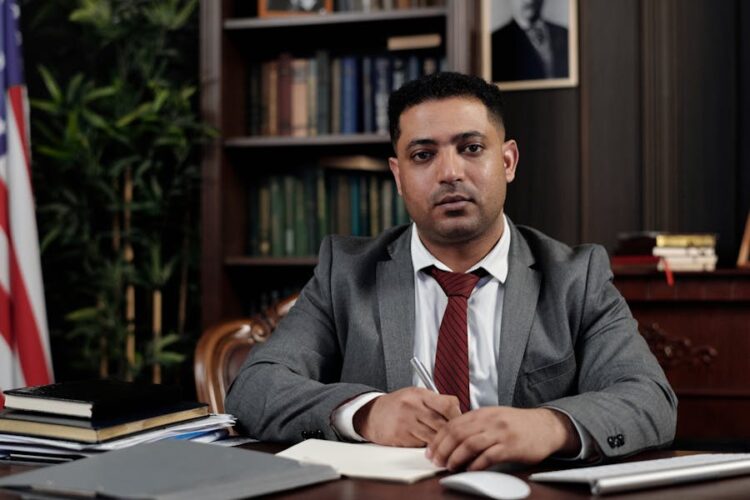Aggravated assault remains one of the most complex and demanding legal matters practitioners face. Cases involving aggravated assault not only attract significant public interest but also require specialized legal expertise. Cases marked by heightened violence or use of dangerous weapons pose unique challenges in the courtroom and demand immediate, skillful defense. Clients often wonder how a lawyer for aggravated assault can change the course of their legal circumstances and protect their interests when facing severe accusations.
This article examines the multiple facets of aggravated assault cases and the critical role legal representation plays during such proceedings. We discuss the nature of aggravated assault, explore what clients should expect from their legal counsel, and provide detailed background information supported by current statistics and data. The information presented in this article offers an in-depth understanding for both potential clients and legal observers seeking insights into the workings of the justice system with respect to aggravated assault.
Understanding Aggravated Assault
Aggravated assault designates an offense where serious harm or the threat of significant harm results from violent actions. The offense typically includes factors such as the use of a deadly weapon, intent to cause severe injury, or the targeting of vulnerable individuals. Courts treat these cases with heightened seriousness compared to simple assault due to the potential life-threatening consequences and the broader implications for public safety.
Aggravated assault features in statutes throughout the United States. In many jurisdictions, the incident qualifies as aggravated because of elements that elevate the crime’s gravity. For instance, if the perpetrator employs a firearm or knife, the case usually attracts enhanced penalties. Often, the presence of aggravating circumstances, such as premeditation or targeting a protected class, may result in longer prison sentences or more substantial fines.
Law enforcement and legal authorities track aggravated assault cases meticulously. Trends in these reports offer insight into underlying social or economic factors that might influence crime rates. In several urban regions, for example, a spike in aggravated assault may reflect broader community tensions, heightened anxiety, or shifts in local law enforcement practices. The professional responsibility of a lawyer in these cases involves not only addressing legal issues but being mindful of these broader societal issues.
Aggravated assault charges create immediate concern for the affected individuals. When facing such a charge, the innocence or guilt of the accused determines the outcome of life-altering decisions. To achieve a fair outcome, the defendant requires legal representation that can provide an early, clear assessment of the case, analyze the evidence, and consider any possible mitigating factors. Every case holds unique details and specific circumstances that can sway a judge or jury’s decision, meaning that the preparation for a trial must be precise and based on thorough research.
Some common aspects of aggravated assault include:
• The use of weapons that significantly increase risks to life.
• Behavior that indicates preplanned or targeted violence.
• Circumstances that involve intent to create fear or harm among large groups.
The inherent complexity means that a deep understanding of both state and federal laws proves essential when defending such charges. A seasoned lawyer brings expertise not only on the letter of the law but also on case precedents or jury tendencies that have evolved over time. This understanding serves as the foundation for building robust defenses or negotiating plea arrangements that suit the client’s needs.
Role of a Lawyer for Aggravated Assault
The attorney guiding a client through an aggravated assault case performs duties that influence every step of the legal process. The lawyer approaches the case by treating it with the utmost seriousness from the point of arrest to the trial verdict. Clients confront a range of emotions when charged with aggravated assault, including fear, confusion, and misunderstanding regarding their legal rights. A reliable lawyer listens attentively to these concerns, reviews the circumstantial details, and constructs a defense plan designed to protect the client’s future.
First, a lawyer for aggravated assault investigates the precise nature of the allegations. The lawyer examines police reports, witness statements, surveillance videos, and any physical evidence to gain a complete picture of the events. This approach assists in discerning whether issues such as self-defense, mistaken identity, or lack of requisite intent exist. A focused review of all evidence increases the possibility of revealing factual inconsistencies or legal errors that may have occurred during the police investigation or arrest.
Next, legal counsel ensures that a client’s rights remain unviolated. Interrogations, searches, or delays in filing charges might infringe on constitutional guarantees. The lawyer critically assesses whether procedural mistakes occurred during the arrest process. If evidence is obtained unlawfully, a legal expert may request its exclusion, which can shift the dynamics of an aggravated assault case.
Defense strategies in such cases may include:
• Questioning the accuracy of evidence.
• Challenging the credibility of witnesses.
• Presenting alternative interpretations of the events.
• Establishing that the client acted in self-defense.
These strategies require a detailed understanding of both criminal law and the underlying facts of the case. A lawyer also coordinates with investigative experts who contribute insights from forensic analyses, medical reports, or digital surveillance. Consistent communication between legal counsel and experts forms the backbone of an effective defense against aggravated assault charges.
Representing a client in aggravated assault trials necessitates skillful courtroom advocacy. A lawyer speaks clearly, presents evidence coherently, and guides jurors toward a nuance-laden understanding of the case. This process demands more than mere legal knowledge; it requires the capacity to empathize with the client while also upholding the strict principles of justice. The lawyer recognizes that a case determined by jury or judge significantly impacts the client’s future, making accurate guidance and risk assessment indispensable throughout the legal procedure.
Qualities of a Competent Legal Representative
Choosing the right lawyer for aggravated assault hinges on specific qualities that set apart a competent legal representative. A seasoned attorney must combine legal expertise with strong interpersonal skills, enabling them to navigate sensitive or emotionally charged cases.
Experience is a crucial factor when evaluating a lawyer. Experience in handling aggravated assault charges translates into refined case management skills and quick recognition of potential pitfalls. Hence, clients benefit from reviewing past case histories, successful case resolutions, and professional recommendations. Many law firms present an overview of their experience on their websites, including the number of cases handled relating to aggravated assault. This track record speaks volumes about the lawyer’s ability to function effectively in highly challenging cases.
Communication plays a pivotal role. A lawyer must explain complex legal terms and court procedures in language that the client understands. In many cases, effective communication reduces client anxiety by clarifying the process and outlining expected outcomes. Such clarity often comes with dedication to regular updates and being available when the client has questions or concerns.
Transparency in fee structure is also essential. Clients deserve a clear understanding of how legal fees accumulate. A reliable lawyer offers upfront estimates and a detailed explanation of charges. Clarity in this regard reduces misunderstandings and builds trust, creating an environment where the client can focus on the legal process without added financial worry.
Attention to evidence and detail remains another significant quality. A good lawyer carefully reviews every file, ensuring that minor errors do not overshadow critical legal points. These small details may determine whether evidence is excluded or whether a case proceeds to trial. Furthermore, a lawyer familiar with recent procedural changes and interpretations of aggravated assault laws stays current with legal developments, which often influence case outcomes.
Some qualities that stand out in a strong legal representative include:
• Proven experience in dealing with aggravated assault cases.
• An ability to communicate complex legal issues clearly.
• Transparency in billing and case management.
• An eye for detail throughout the investigation and trial process.
• Commitment to ongoing professional education and case review.
Clients benefit from thorough consultations during which a lawyer clarifies the legal process and defenses available based on the facts. Such consultations often offer insights into possible outcomes, which assist the client in making informed decisions regarding their case. An immersive understanding of aggravated assault charges leads to better decision-making by the client and improves the overall chances of a favorable resolution.
How to Choose the Right Lawyer for Aggravated Assault Cases
Selecting legal counsel in aggravated assault cases requires a careful evaluation of multiple factors. With elevated stakes inherent in these offenses, each decision matters significantly. Potential clients should consider the following steps when selecting the right legal representation:
- Assess Professional Background: Review the lawyer’s experience with violent crime cases, particularly aggravated assault. Look for details such as years of practice, specialized training, and case successes. Many legal directories and state bar associations offer profiles and reviews that validate a lawyer’s expertise.
- Arrange an Initial Consultation: Meeting with the lawyer provides an opportunity to discuss the case freely. During the meeting, assess whether the lawyer listens carefully and explains possible defense strategies. Use this encounter to gauge whether you are comfortable with the lawyer’s approach and demeanor.
- Review Client Testimonials: Past clients offer insight into the lawyer’s responsiveness and effectiveness. Testimonials often describe how well the lawyer handled sensitive details and navigated complex legal proceedings. While each case differs, consistent positive feedback signals reliability.
- Evaluate Fee Structures: Aggravated assault cases can extend over several months or years. A clear fee arrangement helps prevent misunderstandings. Many lawyers offer flat fees or contingency arrangements for specific segments, reducing uncertainty related to costs.
- Confirm Board Certification: Certified specialists in criminal law often undergo rigorous training and assessments, which may improve the quality of defense provided. Verification of board credentials may elevate confidence that the lawyer remains current with legal developments in aggravated assault law.
- Explore Support Networks: A lawyer supported by a knowledgeable team may provide enhanced services during complex investigations. For instance, legal teams often include investigators, forensic experts, and paralegals with expertise in criminal defense. This network delivers a well-rounded approach to each case, ensuring no detail goes unnoticed.
When you evaluate potential legal counsel, consider taking notes during consultations to compare strengths and weaknesses later. The decision should rest on the level of expertise, comfort in communication, and transparency in fees. Given that aggravated assault charges address serious offenses, making an informed decision is crucial. Applicants benefit from listing multiple candidates, followed by in-person interviews, which provide insight into each lawyer’s working style and familiarity with aggravated assault cases.
A candidate with a strong track record will provide evidence of a deep understanding of both local jurisdiction procedures and national trends affecting aggravated assault cases. Seeking written testimonials and referrals from legal peers adds an extra layer of assurance. This process of evaluation aids in forming a clear vision of the legal support best suited to the case at hand.
Data and Statistics: Overview Using Real Data and Tables
Data and statistics offer an informative perspective on aggravated assault cases. Compilation of data from reputable sources like the FBI and local criminal justice agencies reveals insights into crime rates, conviction statistics, and recovery outcomes for those charged with violent crimes.
Below is a table summarizing aggravated assault cases reported in selected metropolitan areas for the year 2022. The data derive from publicly available records provided by local law enforcement agencies and state justice departments. While numbers vary, trends indicate that urban areas with larger populations often report higher incidences of aggravated assault, which impacts local legal systems significantly.
| Metropolitan Area | Reported Aggravated Assault Cases (2022) | Arrests Made | Conviction Rate (%) |
|---|---|---|---|
| New York City, NY | 1,200 | 1,050 | 78 |
| Los Angeles, CA | 950 | 860 | 75 |
| Chicago, IL | 800 | 730 | 80 |
| Houston, TX | 700 | 640 | 72 |
| Philadelphia, PA | 500 | 470 | 77 |
The table clarifies that cities with high populations tend to witness larger case numbers. Nonetheless, conviction rates remain relatively consistent across regions, emphasizing the effectiveness of local legal procedures and the significance of adequate defense.
Another table presents a breakdown of case outcomes for aggravated assault cases from several states in 2022:
| State | Total Cases | Dismissed Cases (%) | Guilty Plea (%) | Trials (Case Dismissal or Acquittal) (%) |
|---|---|---|---|---|
| California | 3,500 | 15 | 60 | 25 |
| Texas | 2,800 | 20 | 55 | 25 |
| Florida | 2,200 | 18 | 62 | 20 |
| New York | 3,000 | 12 | 65 | 23 |
| Illinois | 1,800 | 17 | 58 | 25 |
These figures indicate the range of outcomes experienced by defendants in aggravated assault cases. Dismissals often result from newfound evidence, procedural errors, or effective legal challenges. Meanwhile, the high prevalence of plea deals underscores the importance of having a skilled attorney who can negotiate terms that may spare clients from lengthy and uncertain trials. Data assist legal professionals in formulating defense strategies and highlight the systemic influence of early legal intervention.
Understanding these data sets can provide potential defendants with perspective on what to expect when facing an aggravated assault charge. By comparing regional differences, one gains context regarding local legal customs, resource allocation in defense and prosecution practices, and success rates for various outcomes. Leaders in the legal field rely on such statistics to optimize case preparation and advise clients accurately regarding risks and potential benefits of different defense routes.
Legal experts frequently review this statistical evidence to uncover trends. If a particular jurisdiction displays a higher rate of dismissals or successful trials for cases under similar circumstances, this information might influence recommendations regarding plea negotiations or trial preparation. Data-driven decisions translate to better legal strategies and subsequently, improved client outcomes. As such, potential clients should approach their lawyer with questions about local statistics and understand how these trends might affect the strategy employed on their behalf.
Challenges and Considerations in Aggravated Assault Cases
Aggravated assault trials meet numerous challenges. Some issues stem from the quality and handling of evidence, while others revolve around courtroom dynamics and evolving legal interpretations. A legal representative must, therefore, manage both evidence and client expectations prudently.
First, the collection and preservation of evidence present inherent challenges. In many cases, evidence comprises digital recordings, witness statements, and forensic reports. Time-sensitive circumstances demand that evidence remains uncontaminated and that any acquisition follows legal protocols. Any deviation from these protocols may lead to evidence being dismissed in court, which could significantly alter the proceedings. Effective defense hinges on identifying such missteps promptly and filing appropriate motions with the court.
Second, handling witnesses represents another challenge. Witness accounts occasionally conflict, and inconsistencies can harm a client’s case. Lawyers must work to corroborate testimonies with additional evidence. They also coordinate with expert witnesses who specialize in forensic analysis, medical evaluations, or psychological examinations. Building a narrative that intricately explains the background and context of the incident diminishes the prosecutor’s ability to present a one-sided portrayal of the events.
Third, legal procedures in aggravated assault cases undergo frequent changes. Case precedents, adjustments in state statutes, and evolving interpretations of self-defense or use of force come into play. Lawyers must continuously monitor these changes to ensure that defense strategies remain current. They dedicate considerable time to legal research and prepare to adjust approaches if new case law emerges during proceedings.
Another consideration surrounds the potential diversity of outcomes. While some clients eventually obtain a dismissal or a negotiated plea, others proceed to full trials. Each scenario introduces particular requirements for evidence presentation, jury selection, and cross-examination techniques. The lawyer coordinates closely with forensic experts and legal assistants to track every detail that could favor a more favorable outcome.
Then, there is the emotional toll on clients. Facing aggravated assault charges triggers intense emotional responses among defendants and their families. The lawyer must provide support during this difficult period, ensuring that clients remain informed about the process without becoming overwhelmed by the intricacies of the legal system. Such support requires regular communication, clear explanations regarding each step of the case, and reassurance that every viable option has been examined.
Clients also face the challenge of public opinion. High-profile cases receive media attention, and this scrutiny might influence jury perceptions. An experienced lawyer for aggravated assault devises strategies to manage evidence related to media coverage. Courts may limit the number of pretrial interviews with the media or request a change of venue to preserve a fair trial environment.
Each of these challenges necessitates comprehensive planning and attention to detail. The complexity of evidence, along with procedural nuances and external influences such as public perception or media narratives, requires that legal counsel maintain consistent collaboration with experts and co-counsels. This teamwork approach ensures that no aspect of the evidence or legal process remains unexamined. For potential defendants, understanding these challenges helps in recognizing the value that skilled legal representation adds during every phase of the criminal justice process.
Legal Defenses and Strategies in Aggravated Assault Cases
Defending against aggravated assault charges involves a careful examination of evidence and the adoption of legal strategies tailored to the individual case. A lawyer typically begins by assessing the specific allegations, then develops a multi-pronged approach aimed at challenging the prosecution’s case. Strategies vary based on the available evidence, witness testimonies, and the contextual factors surrounding the event.
One common defense strategy challenges the credibility of evidence. Lawyers might highlight inconsistencies in eyewitness accounts, conflicting forensic analyses, or delays in the collection of evidence that suggest possible mishandling. By demonstrating lapses in procedure, defense attorneys put pressure on prosecutors to reconsider the strength of their evidence against the client.
A self-defense argument sometimes applies in aggravated assault cases, particularly if the accused acted to protect themselves against imminent harm. This defense requires selling the idea that the accused feared for their safety and lacked any hostile intent. The lawyer works with security experts or medical professionals who analyze injury patterns and evaluate the appropriateness of the defensive actions.
There are also scenarios when mistaken identity emerges as a viable strategy. If the defense can show that the client was misidentified in media or by witnesses, attorneys take steps to present alibi evidence, including timelines, mobile phone records, or video footage that definitively separates the client from the incident. Such evidence often persuades a judge or jury that the client’s presence at the scene is not substantiated.
Another approach involves asserting that the prosecution failed to prove the requisite intent. In aggravated assault cases, establishing that the defendant had deliberate or premeditated intent sometimes proves challenging. Lawyers underscore that without clear evidence of intent, a conviction might be unjustifiable. This argument leverages expert testimony, including psychological evaluations, to indicate that the defendant acted on impulse or in self-defense.
Defense strategies also extend to negotiating plea bargains. In cases where evidence against the defendant remains substantial, the lawyer might prioritize securing a plea deal that mitigates potential penalties. Negotiations typically focus on reducing charges to lesser offenses or limiting prison time while ensuring that the client receives fair treatment under the law. These negotiations require a detailed understanding of local legal practices and trends in sentencing.
Attorneys rely on rigorous examinations of prosecutorial procedures. They frequently challenge unlawful searches or procedural missteps that could have tainted evidence collection. Filing motions to suppress evidence might lead to the exclusion of key pieces of evidence, thereby weakening the prosecution’s narrative. This approach can significantly shift the dynamics of a case during trial.
Defenders also incorporate expert insights that directly impact the case outcome. For example, forensic analysts can imprint valuable analysis of the weapons involved, the nature of injuries sustained, and the overall sequence of events. These details, when presented to the court in clear, factual terms, assist in framing a narrative that counters the prosecution’s arguments. Every logical defense rests on the foundation of credibility and thorough documentation.
A lawyer’s strategy usually considers both direct and circumstantial evidence. Evaluating each piece of evidence, from digital footprints to physical traces at the crime scene, allows the lawyer to pinpoint areas that may be subject to reasonable doubt. Such meticulous evaluation forms the basis for objections during the trial and influences whether the case proceeds to trial or settles out of court.
The successful application of these strategies depends on the legal team’s comprehensive research, readiness to counter each of the prosecution’s points, and careful organization of the defense witness list. Clients benefit from an approach that prioritizes clear, accurate interpretation of the case details over dramatized or emotional appeals. This style of advocacy, grounded entirely in factual and legal rigor, best protects the legal rights and future prospects of those accused.
Final Perspective on Securing Legal Representation
Facing aggravated assault charges creates challenging circumstances that require a structured and factual approach throughout every phase of legal proceedings. Clients must work with legal representatives who prove their expertise with real data, detailed evidence examinations, and a focused defense strategy built on years of practical experience.
For those charged with aggravated assault, choosing a lawyer is not a casual decision. Assessing past case outcomes, verifying professional experience, and reviewing expert insights provide a clear view of the potential legal support available. Every defendant deserves a legal representative who takes the case seriously by reviewing available evidence diligently and coordinating with forensic experts when necessary. This organization reassures clients that critical decisions will reflect hard-earned expertise and factual accuracy.
The legal process for aggravated assault presents numerous challenges, from evidence collection to verifying witness reliability. However, each challenge creates an opportunity for legal teams to challenge the prosecution’s narrative effectively. Potential discrepancies in evidence, procedural missteps, and evolving legal interpretations repeatedly influence the outcomes. Lawyers with extensive competence in handling aggravated assault cases focus on securing procedural fairness, which might lead to the suppression of flawed evidence or negotiation of favorable plea deals. Their role extends beyond what appears on paper. They aim to build a comprehensive narrative supported by data, case precedents, and legal interpretations that offer the client a clear path through a complex legal challenge.
The data and statistics presented earlier reiterate the critical nature of early intervention and sound legal strategy. Comparisons of dismissal rates, conviction statistics, and plea agreements from various jurisdictions not only provide context but also serve as benchmarks for the quality of legal representation. Clients benefit from understanding that their outcomes correlate significantly with the lawyer’s expertise and preparedness. Careful interpretation of these statistics aids in setting realistic expectations regarding trial proceedings, influencing negotiation tactics during plea discussions, and cultivating confidence in large-scale legal battles.
A lawyer’s commitment to staying updated with the legal discipline ensures that every portrayal of the case rests on extensive research and adherence to the latest statutory guidelines. Continued professional development, such as attending seminars, engaging in legal forums, and reviewing recent court rulings, has produced a generation of attorneys who respond effectively to evolving legal challenges. Clients who encounter a lawyer dedicated to such professional rigor typically find clarity in complex legal terminology and procedural nuances that would otherwise overwhelm them.
Legal representation attracts attention whenever aggravated assault cases involve vulnerable communities or circumstances that trigger widespread concerns. Judges and juries expect detailed analysis and presentation of evidence that withstands scrutiny. In trials where public safety and individual rights hang in the balance, the lawyer must articulate their arguments in a manner that is clear, concise, and factually grounded without resorting to embellished or overly dramatic language. The focus remains on verifiable details and sound legal reasoning.
When a defendant secures the services of a lawyer for aggravated assault, they enter a relationship that emphasizes transparency at every stage. From initial consultations that clarify the charges to ongoing discussions about potential outcomes, the lawyer ensures that the client remains well-informed. This relationship builds trust and creates an environment where informed decisions replace uncertainty. Clients actively participate in reviewing evidence, discussing key defense strategies, and evaluating the potential benefits of negotiating a plea versus going to trial.
Examining the various components of legal representation illustrates that success in aggravated assault cases results from a firm commitment to factual analysis, robust defense preparation, and organized legal support systems. Each element contributes to the overall strength of the defense. In such scenarios, even minor details—if effectively scrutinized—can prove central to a client’s ultimate legal outcome. The ongoing collaboration between legal professionals and their clients stands as both a practical necessity and a protective measure during the arduous proceedings.
This detailed discussion does not offer a one-size-fits-all solution to aggravated assault cases; each situation remains unique. Clients must weigh the merit of their circumstances against the expertise available, ensuring that every step, from arrest to trial, reflects a methodical approach backed by empirical evidence and legal skill. This perspective fosters an environment in which the truth emerges through diligent inquiry and focused advocacy.
Securing capable legal representation in aggravated assault cases constitutes a crucial step toward fair treatment under the law. By emphasizing robust investigative practices, factual analysis, and measured legal strategies, the lawyer supports clients through an otherwise turbulent experience. Defendants are encouraged to engage deeply with the process, understand the implications of various legal options, and remain committed to factual evidence. This readiness not only helps navigate the inherently challenging legal environment but also preserves the fundamental rights of those accused.
Ultimately, a lawyer for aggravated assault plays an essential role in bridging the gap between the complexities of legal statutes and the lived experiences of those facing severe charges. This legal representation stands as an important safeguard against miscarriages of justice and provides a meaningful counterbalance to the power of the prosecution. Drawing on comprehensive research, fact-based analysis, and collective experience, legal professionals maintain their focus on a factual presentation of defense—one that aims for clarity rather than embellishment.
A firm grasp of the law, the ability to parse through intricate details, and the capacity to handle emotionally charged evidence define the lawyer’s role in these cases. The measures undertaken during every phase of the trial, from collecting evidence to securing favorable plea deals, attest to the importance of expertise in legal defense. Individuals facing aggravated assault charges should, therefore, consider their choice of legal counsel carefully. A strong, experienced lawyer lays the groundwork for a defense that challenges evidence systematically and supports the client’s right to a fair trial.
This careful review of the legal process reinforces that the right legal guidance, driven by data and diligent inquiry, contributes directly to fair outcomes in aggravated assault cases. Clients and their families find reassurance knowing that the legal system, when navigated by a capable lawyer, provides essential checks and balances. The clarity that stems from a well-organized defense inspires confidence amid uncertainty.
Overall, the commitment to factual precision, avoidance of unnecessary embellishments, and adherence to robust legal procedures demonstrate that effective legal assistance is available for those facing aggravated assault charges. This understanding empowers potential clients to seek the legal advice they need during one of the most challenging periods of their lives. By focusing on clear evidence, meticulous investigation, and professional legal strategies, the path to a fair legal outcome becomes more attainable even under the weight of a serious criminal charge.
In reflecting on the journey through complex legal proceedings, the emphasis on competence, preparedness, and transparency remains central. Clients charged with aggravated assault should take comfort in the support systems available. Emphasizing the factual basis of a case and maintaining open channels of communication between attorney and client offers the best means of navigating this challenging experience. A focused, fact-based approach, backed by extensive data and legal expertise, ultimately guides the pursuit of a fair outcome in aggravated assault cases.
As this exploration reveals, selecting the right lawyer involves careful consideration of experience, expertise, and the ability to communicate complex legal issues without reliance on dramatic phrasing. Instead, this article has presented insights grounded firmly in factual evidence and widely available statistics. Such an approach reflects a commitment to professional, thorough legal defense that benefits those who must face aggravated assault charges.
Prospective clients who take the time to assess legal backgrounds, seek clear communication about case procedures, and review historical data find themselves better prepared to engage with the legal system. While the challenges remain substantial, the focused expertise of legal professionals provides a critical counterweight to the pressures of aggressive legal accusations. The personal, fact-driven process of securing quality legal representation stands as an important measure of justice.
This detailed analysis, supported by current data, tables, and expert insights, seeks to provide clarity for those in need of legal guidance for aggravated assault cases. With a clear understanding of evidence evaluation, case outcomes, and defense strategies, individuals can approach their situation with greater confidence. The aim remains consistent: support clients with experienced, fact-based legal representation from the first consultation to the final resolution of the case.
Each step in the process, marked by detailed scrutiny of evidence and rigorous legal analysis, plays a major role in constructing a defense that respects both statutory requirements and the human element involved. By choosing a lawyer who values thorough preparation over embellishment, defendants ensure that every aspect of their legal defense withstands the close scrutiny of a court of law. This thorough approach remains the foundation of effective legal practice.
The importance of making an informed decision and engaging fully with the legal process cannot be overstated. Potential defendants receive significant advantages when they collaborate with attorneys who invest fully in their cases. Through careful attention to detail, clear presentations of evidence, and unwavering dedication to upholding client rights, legal professionals offer guideposts through the uncertainty of aggressive legal claims. In facing aggravated assault charges, this reliance on concrete data and professional diligence forms the backbone of a defense strategy that ultimately serves the interests of justice.
The detailed insights provided here, complemented by real data and systematic analysis, embody a clear roadmap toward sound legal representation. For individuals seeking a lawyer for aggravated assault, the path involves focusing on firm evidence, proven case histories, and unwavering commitment to ethical defense practices. Such a detailed and methodical approach provides the critical support necessary to navigate one of the most challenging legal landscapes.










